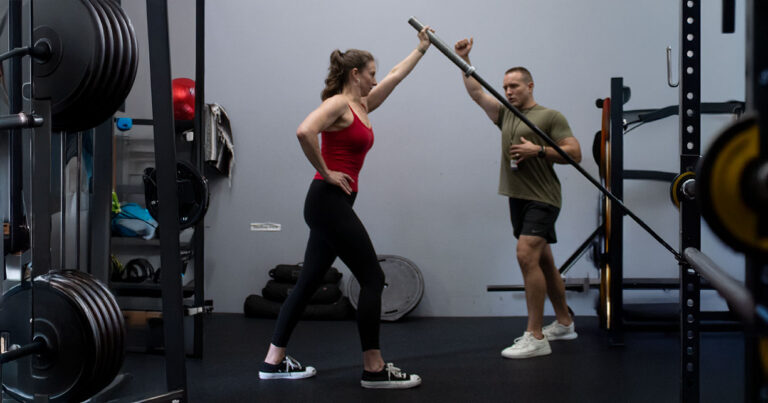Early fitness culture for women was largely limited to activities that were seen as “appropriate” for maintaining a slender, toned figure, such as light calisthenics or dance. Women’s exercise was often seen as an extension of beauty routines rather than a pursuit of physical strength. The prevailing belief that weight training would make women “bulky” or “unfeminine” reinforced these limitations, keeping many away from more rigorous forms of exercise. The personal trainers at PPT understand that these perceptions can still hold sway – so it’s always important to have a discussion about your goals when working with a personal trainer.
The journey of women’s fitness has been a dynamic one, evolving from a focus on grace and aesthetics to an emphasis on strength, health, and empowerment.
The 1960s and 70s marked the beginning of a significant shift, spurred on by the feminist movement and changing cultural attitudes toward gender roles. As women began pushing for greater equality in various aspects of life, this extended to fitness as well. The rise of trailblazing female athletes, like tennis champion Billie Jean King, helped to challenge stereotypes about women’s capabilities. Around the same time, fitness facilities that had previously been male-dominated began to open their doors to women, making strength training more accessible and encouraging broader participation. We now have more woman being trained with a personal trainer than men!
Led by fitness icons such as Jane Fonda, whose workout videos became household staples, aerobics combined rhythmic movement with music, making exercise feel more like a fun social activity than a chore. This era saw a dramatic increase in women’s involvement in fitness, with group classes offering a welcoming and energizing environment as well as the mainsteam acceptance that you do not need to be an Olympian to benefit from working out with a personal trainer. The emphasis on cardiovascular health, weight loss, and toning provided a more accessible entry point for many women who had previously felt excluded from traditional gym culture. We love the fact that a majority of our Personal Training clients are women! Thanks Jane!
The aerobics craze of the 1980s played a pivotal role in reshaping the fitness landscape for women.
As the 1990s and early 2000s approached, perceptions continued to evolve, with a growing interest in weight training and strength-based workouts. The publication of studies debunking the myth that women would become “too muscular” by lifting weights helped change attitudes, as did the rise of female athletes and fitness models who embodied both strength and femininity. Celebrities like Madonna, who embraced weight training, yoga, and varied workout routines, further popularized the idea that fitness was about much more than just appearance—it was about personal power, health, and longevity.
Overall, the shifting perceptions of women’s fitness reflect a broader cultural movement toward empowerment, inclusivity, and self-expression.
The acceptance of women participating in all types of exercise has reached new heights, with social media playing a significant role in promoting body positivity and diverse representations of female strength. Influencers, fitness professionals, and everyday women share their journeys, challenging outdated norms and inspiring others to embrace their own version of fitness, whatever that may look like.
Today, the definition of women’s fitness is more diverse than ever, encompassing a wide range of activities from CrossFit and powerlifting to dance cardio and yoga.
Despite these advancements, challenges remain. The fitness industry still grapples with issues like unrealistic body standards and the commercialization of “quick fix” solutions. However, there is a growing recognition that fitness is not one-size-fits-all, and that it should be about personal goals, well-being, and enjoyment. Programs that prioritize functional movement, mental health, and holistic wellness are gaining traction, further expanding the notion of what women’s fitness can and should be.
From the restrictive views of the early 20th century to today’s multifaceted and diverse fitness landscape, women have made remarkable strides in reclaiming exercise as a form of self-care and a celebration of strength.

